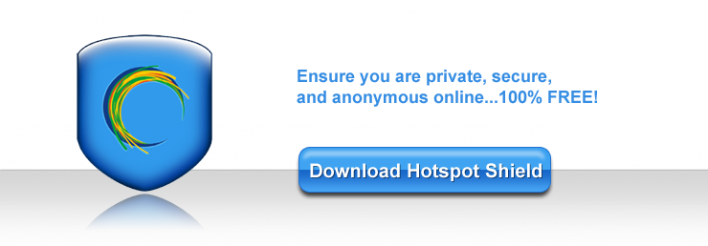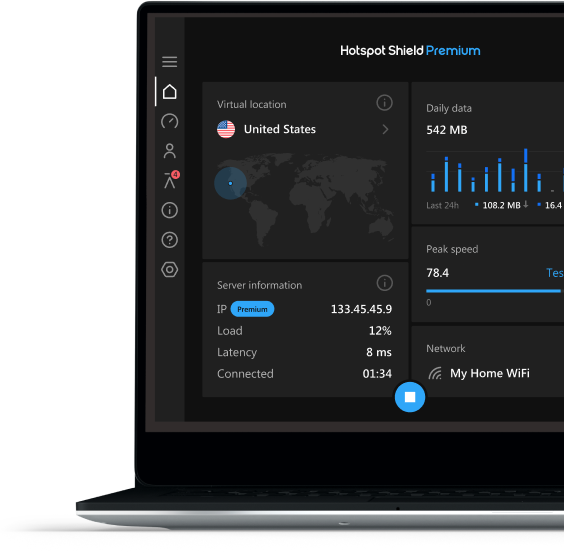


A baseline without any VPN connection was established before each individual service was tested. Hotspot Shield did pretty well in our tests, which were conducted in a suburban New York home using regular cable-company internet service.īroadband speeds, connection time and network delay (latency) were tested using Ookla's service. In the upper left is a hamburger (three horizontal lines) menu to things like Upgrade to Premium, Settings (turn on VPN at startup, stop IP leakage, Kill switch and others), Help and Quit. The interface warns you when you're at 250MB, halfway through your daily allowance.ĭon't be fooled by the drop-down menu of countries to connect to you'll have to pay to use any but the United States, and you're automatically assigned a server. Once you do, a small world map appears, along with the IP address Hotspot Shield assigns you and your current session's data usage. The first screen you'll see tempts you to start a free trial of the paid plan by clicking a big, bright-blue button, and there won't seem to be any other option.Ĭlick the big button in the middle to connect.

It took us only 2 minutes and 15 seconds to get and install the 19MB Hotspot Shield Windows client. law-enforcement agencies, although the company's 2017 transparency report states that it has never given any user data to law enforcement. AnchorFree is based in California and hence subject to search warrants and other forms of investigation by U.S. Hotspot Shield uses a proprietary VPN standard called Hydra VPN, which may put off privacy experts who prefer better-known standards such as OpenVPN or L2TP/IPsec. The company's head told Tom's Guide that that practice has been ended, and that ads now appear only when opening and closing VPN connections in the Hotspot Shield Android app. In the past, Hotspot Shield's free version injected ads directly into web pages displayed in a desktop browser.

can purchase a subscription" to the paid service. The website also says that users will "see extra ads when browsing with Hotspot Shield" and that users who "would prefer not to see ads. The parent company, AnchorFree, denies those claims but states that it does collect "anonymous, aggregate data about which websites our users visit and which apps our users use." (Many other VPN services promise to never do this.) There have been allegations that Hotspot Shield, on both its free and paid plans, collects user data and directs user traffic to its advertising partners.


 0 kommentar(er)
0 kommentar(er)
